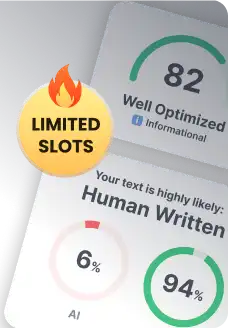To really understand what a content strategist does, you need to understand the philosophy behind producing and maintaining valuable, useful content. A content strategist finds a balance between what your audience needs and what your business goals are. They strategically create, manage, and promote content on multiple channels. Through data-driven insights, they make sure content meets users’ needs while advancing brand goals. An eye for detail and a shot of creativity are essential in this role. You’ll need a strategic mindset to reach and move your audiences in the most impactful ways.
Key Takeaways
- A content strategist plays a crucial role in planning and managing content across various online platforms, ensuring it aligns with business objectives and resonates with target audiences. Work with partners and stakeholders to understand how users interact. Develop creative, valuable content that increases customer interactions and builds brand advocacy.
- It’s vital to create detailed content strategies that address specific business objectives. Then we help you distill that down to the messaging and themes that resonate with your target audience. Next, we identify content objectives to inform our production strategy.
- Your key duties should be to lead and coordinate content on digital channels. Not only will you work alongside content creators and designers, but you’ll also create editorial calendars and workflows to deliver content consistently and efficiently.
- Analytical skills are the cornerstone of a content strategist. Data analytics, in-depth audience research, and competitor strategy analysis are all fundamental in helping to inform content decisions and measure effectiveness.
- Creativity and innovation are key for coming up with unique content ideas that stand out, and constantly experimenting with new formats, etc. Keeping in touch with your industry’s trends and movements can help provide inspiration for innovative content development.
- This position requires a strong educational background in marketing, communications, or related fields. This is equally important as relevant work experience in content creation and strategy. Completing certifications in digital marketing and/or content strategy will help strengthen professional credentials and build credibility.
What Is a Content Strategist
They strategize, create, and optimize content for websites, social media, and email. In this role, collaboration with leaders across the organization. The primary focus is to ensure the content aligns with broader business goals and resonates with the target audience.
By understanding user behavior, content strategists aim to produce compelling content that boosts customer interaction and promotes brand loyalty.
1. Define Content Strategy Role
Developing robust content strategies is crucial to ensuring that content consistently contributes to business objectives. Content strategists must formulate actionable, tactical plans that support these priorities.
They identify the key messages and themes to connect with their target audience, requiring an in-depth understanding of the audience’s content consumption preferences. This knowledge allows you to develop content that truly connects with them.
Establishing content goals is vital, as these overarching goals guide content creation, ensuring alignment with overall business objectives. Content strategy seamlessly blends creativity and analytical thinking. This combination enables strategists to craft engaging narratives and leverage data to optimize impact.
2. Explore Key Responsibilities
The role of a content strategist is expansive and often encompasses all facets of content strategy and creation. They lead the structuring and presentation of content on digital platforms, ensuring that content remains aligned with the strategy, brand, and message.
This involves collaborating with content creators, designers, and other team members to produce content that adheres to brand guidelines. Establishing editorial calendars and workflows ensures consistency in content delivery.
This structured approach maintains a steady flow of content and keeps the team on track with strategic goals. Content strategists must collaborate across departments, utilize data to guide content decisions, and transform complex information into easily digestible content.
They identify core brand messages and develop a comprehensive content value proposition. Additionally, they establish effective content workflows, management systems, and governance frameworks.
3. Analyze Daily Tasks and Duties
Content strategists focus on identifying the target audience, including their desires and pain points. This research drives content strategy and enables the creation of customized content that addresses audience-specific needs.
Monitoring content performance using analytics tools is vital for making informed decisions about future content strategies. By tracking performance metrics, content strategists can identify the most effective types of content and refine their strategies accordingly. Implementing SEO strategies is another important task, enhancing content visibility and attracting organic traffic.
Responsibilities can vary significantly between organizations. Few professionals master both the creative and analytical aspects of content strategy.
Skills for a Content Strategist
In the dynamic landscape of digital marketing, a content strategist requires a unique skill set, enabling them to navigate the unpredictable terrain with agility. Here, we explore the fundamental skills that define an exceptional content strategist.
Communication and Collaboration
Effective communication skills are paramount for content strategists as they bridge the gap between different teams and departments. Building relationships across the stakeholder ecosystem is vital for understanding requirements and obtaining constructive feedback on content initiatives.
Active listening and a genuine desire to comprehend the needs and goals of various departments are essential. Clear, consistent communication and collaboration within the team streamline content production workflows and maintain alignment.
Engaging with external partners is critical for enhancing and expanding content distribution strategies, and broadening content reach and resonance.
Want to try SurgeGraph for free?

Generate 20 documents

SEO tools (Auto Optimizer, Internal Linking, and more)

No credit card required
Analytical and Research Skills
Content strategists must possess the ability to analyze audience data to inform and refine content strategies. A data-driven approach to decision-making is key to measuring effectiveness and making informed adjustments.
Conducting in-depth audience research reveals trends that can be optimized for future opportunities. Evaluating competitor activities provides valuable insights and identifies areas for improvement. This analytical mindset is crucial for adapting to the ever-changing digital landscape and maintaining fresh, effective content strategies.
Creativity and Innovation
Creativity is essential for developing fresh content ideas that attract and retain users. Content strategists should facilitate brainstorming sessions to generate original concepts and ideas. Experimenting with new content formats helps prevent audience disengagement.
Maintaining awareness of industry trends is crucial for producing creative and captivating content. Creativity and innovation empower content strategists to keep brands at the forefront of their industries. They create content from the ground up, which is essential for convincing content-hungry institutions to value user-centered content.
Qualifications Needed
Educational Background
Degrees in marketing, communications, or related fields provide a strong foundation for those aspiring to become content strategists. These disciplines offer a comprehensive understanding of brand awareness and governance, skills highly valued in roles like Tesla’s Content Specialist.
While advanced degrees can be beneficial, they are not mandatory. Few content marketing strategists hold advanced degrees. Coursework in digital marketing and content management further develops the skills necessary for creating successful, holistic marketing strategies.
Ongoing education through virtual courses and webinars is equally important, ensuring that skills remain sharp and aligned with evolving industry standards. These educational avenues provide a solid foundation in the art of content strategy, equipping individuals to lead confidently in a constantly changing field.
Relevant Work Experience
Real-world experience is the cornerstone of content strategy practice. Entry-level roles in copywriting, editorial, or web development help build a strong skill set and understanding of the field.
Internships and entry-level positions provide invaluable practical experience, allowing individuals to apply theoretical knowledge in real-world scenarios and cultivate a hands-on appreciation for content strategy. For instance, Ogilvy’s recent job descriptions have highlighted the importance of experience in creating content from the ground up.
Documenting achievements and skills gained in these roles can help demonstrate competencies that set you apart. A background in law, journalism, or writing is highly advantageous, as these fields hone critical thinking and communication skills.
Proven experience, as demonstrated by GOV.UK and Microsoft’s Flipgrid showcase a track record of creating effective strategies that resonate with audiences.
Certifications and Training
Certifications in digital marketing and content strategy significantly enhance a professional’s career. These credentials, recognized by employers, serve as concrete proof of expertise and a commitment to the field.
Participating in workshops and training sessions keeps professionals abreast of the latest best practices in content marketing. Continuous education is vital in an industry that demands knowledge of current SEO and analytics practices.
Numerous online resources facilitate the acquisition of specialized knowledge in these areas, helping content strategists remain agile and relevant. The job market is actively seeking specialists proficient in both content governance and UX design, a demand reflected in job listings from organizations like GOV.UK and Ogilvy.
By fostering a continuous learning mindset, content strategists can develop more targeted, effective strategies that deliver results, making themselves invaluable assets to any organization.
Importance of Content Strategy
In today’s competitive marketing landscape, content strategy is more crucial than ever. The demand for skilled content strategists is high, with 82% of marketers actively investing in content marketing. It is essential to understand how a robust content strategy aligns with broader business objectives, driving customer engagement and building brand authority.
Align with Business Goals
A successful content strategy must align with an organization’s overarching goals, ensuring that every content asset contributes to business success. For example, if an airline aims to increase brand awareness, it must produce shareable content that directly addresses the needs of its target audience.
Want to try SurgeGraph for free?

Generate 20 documents

SEO tools (Auto Optimizer, Internal Linking, and more)

No credit card required
Establishing clear, measurable goals for content performance is essential, as is aligning with business priorities, such as increasing website traffic and improving conversion rates. Collaboration with leadership is crucial to ensure that content strategies are in line with the company’s vision.
This involves ongoing conversations to understand leadership’s vision and goals, and integrating this information into the content strategy. A content strategist might collaborate with the marketing team to align content efforts with upcoming product launches, ensuring consistent messaging across all channels.
Enhance User Engagement
Engaging content is the core of any successful content strategy. Creating meaningful content that addresses user needs and interests is essential for fostering engagement. This requires conducting thorough audience research to understand what resonates most with the target audience.
Interactive content formats, like quizzes or polls, encourage audience participation and create a more immersive experience. Measuring engagement metrics helps identify what works and which areas need improvement, such as time on page or click-through rates.
For instance, if a particular blog post generates significant traction, it indicates that the topic is of interest and should be further explored. Through an iterative process of measuring and refining strategies, content strategists can maximize user engagement and cultivate long-term customer loyalty.
Improve Brand Visibility
Enhancing brand visibility is a critical aspect of content strategy. Implementing SEO best practices makes content more discoverable in search engines, ensuring that potential customers find it when searching for relevant information. This includes optimizing for keywords, meta tags, and mobile-friendliness.
Utilizing social media channels maximizes content reach and visibility. Sharing content on platforms where the audience is most engaged increases the likelihood of it being seen and shared.
Developing shareable content, such as infographics or videos, encourages audience sharing and boosts brand awareness. This is an area where content strategists often face challenges, particularly when seeking buy-in for their initiatives. They must cultivate a strong sense of brand awareness to succeed.
Partnering with SEO firms can enhance content optimization efforts. Through such collaborations, the user experience and SEO performance of e-commerce category pages can be significantly improved.
With 60,000 professionals holding the title of Content Strategist on LinkedIn, the field is undoubtedly gaining momentum. This discipline combines artistry with technical expertise, creating a field that is as much an art as it is a science.
Frequently Asked Questions
What is a content strategist?
A content strategist is someone who plans, creates, distributes, and governs content on all platforms. They drive content creation that serves both business objectives and audience needs. Their work increases loyalty and fuels advancement.
What skills are essential for a content strategist?
Primary skills would be great writing, editing, and analytical skills. Knowing how to integrate SEO and reach your audience with engaging content is key. Of equal importance are creativity and strategic thinking.
What qualifications are needed to become a content strategist?
A bachelor’s degree in marketing, communications, or a related field is typical. Knowledge of the Capitol’s inner workings is a plus. Experience in content creation and digital marketing is a plus.
Why is content strategy important?
The content strategy ensures everything is aligned and up to date. It’s critically important in attracting and retaining customers. Remember, effective strategy builds brand awareness and furthers business goals.
How does a content strategist improve SEO?
They find content opportunities based on how people search. They prioritize audience intent and engagement. All this combined contributes to search engine visibility and organic rankings.





